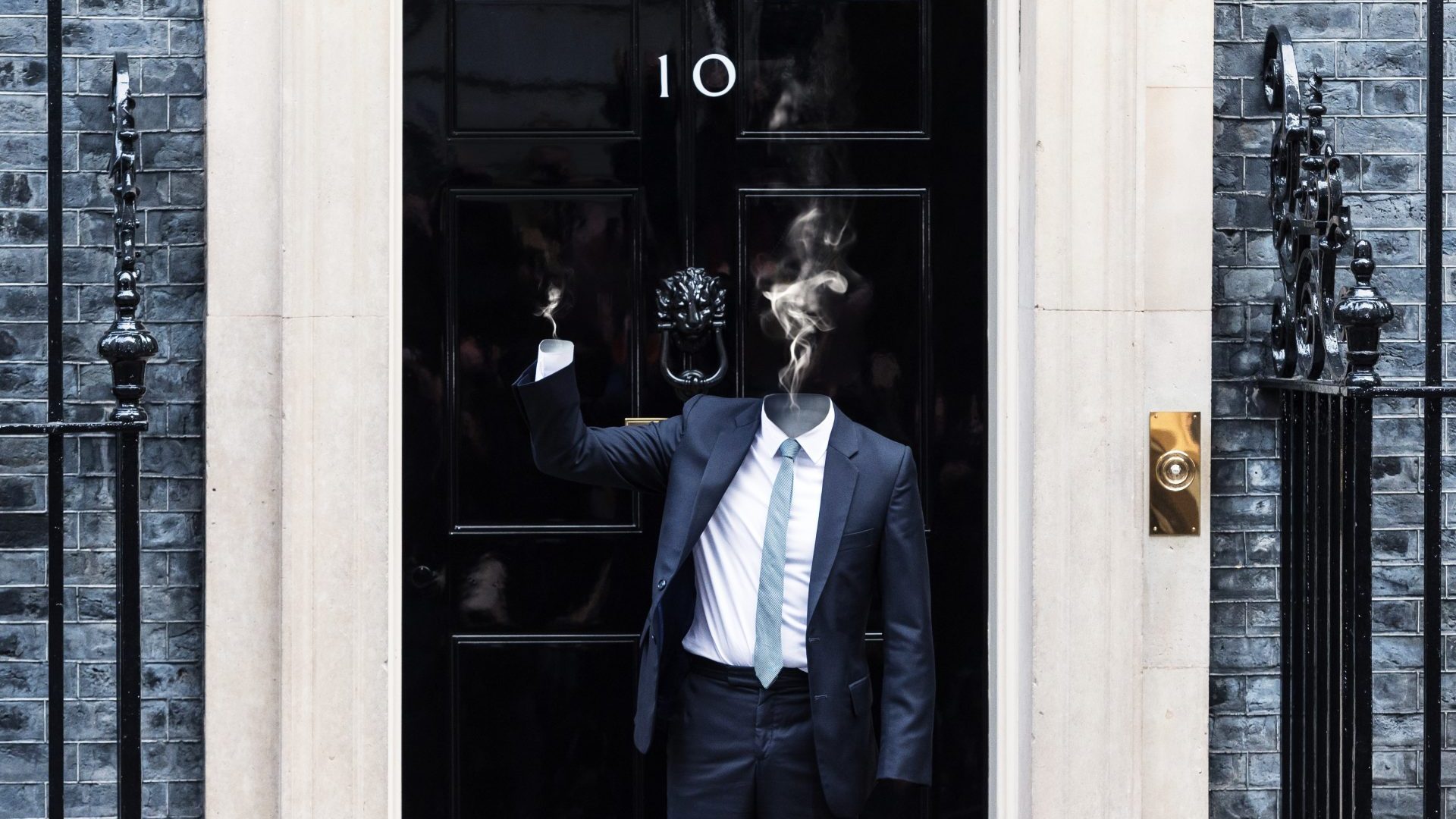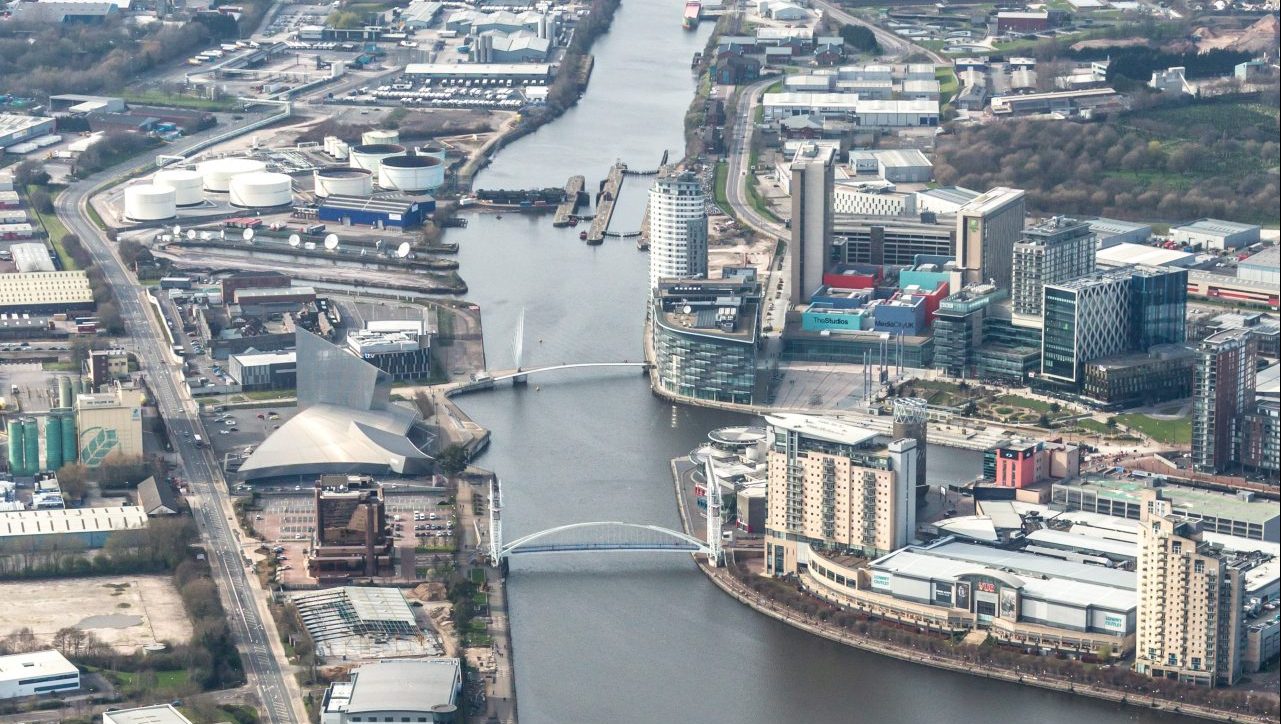Terry Pratchett was a master of writing political leaders, never more so than when he wrote quips for the dictator of his fictional city – a man called Lord Vetinari (Pratchett was also notoriously fond of stupid wordplay).
Pushed on his decisions, Vetinari would often respond that “my motives are entirely transparent”, leaving his interlocutors – and the reader – to wonder whether he meant that his motives were clear to see, or that they were altogether invisible.
Rishi Sunak has yet to start routinely quoting Pratchett, but as voters we might be left to wonder the same about his unlikely premiership: what on earth is Sunak actually trying to do? What’s the goal of his government? What does he want?
Anyone hoping for answers in Sunak’s first public address of 2023 would have been sorely disappointed, despite the rhetoric initially sounding promising: we were assured there would be “no tricks, no ambiguity” on five clear promises to the British public. But the second anyone took even a cursory look at the promises, things quickly disintegrated.
It is worth tackling each of these in turn, because they represent Sunak’s first and best chance to set out his stall, given his status as the ultimate accidental prime minister. Over the summer, Sunak roundly lost a leadership contest to a candidate so catastrophic that her premiership went down in flames in less than seven weeks.
Faced with that calamity, the Conservatives needed any warm body that could be chosen without requiring another vote of members – and Sunak was that body. The early weeks of his premiership were entirely taken up with putting out the most urgent of the fires set by Liz Truss.
But Sunak has had a good Christmas and New Year’s break. His government has decided to deal with the acute NHS crisis – of which more later – by simply denying it. Sunak hasn’t been convening Cobra, or on the airwaves reassuring the nation or announcing action – he’s had a good chunk of time off. He has even hired his old friend and best man James Forsyth (until recently political editor of the Spectator) to his team. If ever there was a chance to set out what he stands for and what he wants his government to do, it was that speech. Instead, we got five “promises” – or rather, five platitudes.
The first was the clearest: Sunak promised to cut inflation in half by the end of 2023. There are several issues with this, one of which is that the Bank of England – which acts independently of government – has the lead responsibility in tackling inflation.
The second issue is that most economists estimate that inflation will halve by the end of the year anyway. This is largely because the large rises in oil, energy and wheat prices caused by Russia’s invasion of Ukraine will soon be more than a year old, and so become “baked in” to prices – halving inflation doesn’t mean prices will go back down, after all, it just means they’ll go up more slowly.
So much for that. And yet most of the other promises are, if anything, worse: Sunak’s second pledge was to “grow the economy”, which for most governments is a goal that goes without saying. The prime minister is not pledging here to have the fastest growth among the G7 group of highly developed nations, or even to match the average. He is merely committing his government one day, after we get through our current recession, to have some kind of economic growth again in the future. Whoop-de-doo.
Pledge three might sound familiar to anyone who’s lived through the last decade or so. Sunak has promised to cut the national debt. He is the fifth Conservative prime minister in succession to do so, following almost 12 years of Conservative-led governments.
The 2010 manifesto on which that government was first elected noted that “our economy is overwhelmed by debt”, that “our national finances are mired by massive debt” and that the “debt crisis” was Labour’s “terrible legacy”.
At the time the Conservative Party wrote that into its manifesto, the national debt stood at just under £1,200bn. By the middle of 2022 – 12 years into the Conservative plan to cut debt – it stood at more than £2,400bn. Ministers will inevitably call upon various special pleadings as to why, instead of cutting the national debt, they have doubled it, but it does make yet another promise to cut it ring rather hollow.
The fourth pledge concerns the NHS, and is a promise to do something to tackle waiting lists for surgery and treatment, which are still far longer than they were before the coronavirus pandemic. This is an ongoing piece of work that the NHS and Department of Health has been focusing on, and there doesn’t appear to be any concrete new proposal or new money accompanying Sunak’s pledge – nor any firm target or deadline.
It is also an extraordinarily tin-eared promise to make when the government is burying its head in the sand over a far more acute winter crisis: there are swathes of the country where the NHS is either on the brink of collapse, or already facing full-scale collapse.
Years of neglect of social care have left as many as one in three hospital beds filled by people who shouldn’t be there but cannot be discharged. The knock-on effects of this – compounded by a rough flu season and ongoing Covid admissions – have backed up A&E departments, leading to 12-hour-plus waits and queues of ambulances for hours outside hospitals.
The UK is facing as many as 500 excess deaths a week beyond the usual level for this time of year – surely not a coincidence – so to hear the prime minister make pledges on the NHS while ignoring the daily tales of devastation coming from British hospitals is as surreal as it is horrifying.
Sunak’s unique brand of self-serving vacuousness came up in his inept handling of an obvious question from Laura Kuenssberg on Sunday: did his family use private healthcare?
This is a question with two straightforward answers. The best – the one that reassures the public that the PM uses the same services that the rest of us do – is to say that as prime minister, it’s right for you and your family to use the NHS.
But there is an answer that works for a Conservative, too: it is to namedrop Margaret Thatcher, and to say that as someone fortunate enough to be able to access private healthcare, you avail yourself of it, and thus help to take some pressure off the NHS.
Sunak predictably didn’t give either answer – instead insisting that the question was somehow a private matter, and so one he refused to answer. As with previous questioning over his wife’s status as a non-dom, all he has done here is guarantee he will be asked this time and again until he eventually answers it.
Meanwhile, Sunak continued to refuse to call what is happening in the NHS a crisis, even as ambulance staff despair about arriving for example nine hours after urgent 999 calls only to find the would-be patient already long since dead.
Sunak’s fifth and final promise – on his one attempt to set out his stall – is a grimly uncharitable one to have made while still technically within the 12 days of Christmas, which is of course the story of how Jesus Christ became a refugee within the first month of his life.
Sunak, of course, did not promise he would have offered shelter to mankind’s saviour, but rather sided with the Herods of the world – pledging that he would stop Channel boat crossings and deport people entering the country “illegally”. This is a stupid promise to make, as to a large chunk of the country it merely sounds callous, especially given that the government has shut down every “legal” or safe route into the country for asylum seekers.
But even people to whom that message appeals do not believe Sunak can get it done, not least because all of his recent predecessors have promised the same and delivered nothing. Only around 4% of the country, according to recent polling, believe Sunak can stop the boats.
Sunak began 2023 with an opportunity to define his premiership. The danger is that he succeeded: he made a series of statements that he said had “no ambiguity” and would “restore trust” in politics. In reality, he made five vague promises, mostly with tricks embedded. He offered no vision, no clear ideology, nothing that could ever come to be called Sunak-ism.
What Sunak seems to be trying to do is cast himself as the good, sensible, technocratic manager of a nation. That sometimes works for a leader, but it does come with one key component: you have to be an effective manager of a nation.
As it stands, the UK is expected to have one of the worst economic downturns of the developed world, and there is nothing in Sunak’s proposals to address that or to tackle the country’s productivity issues. Sunak is facing widespread public and private sector strikes and seems to have no plan to deal with them other than toughing it out – or threatening to change the law and sack striking nurses (the ultimate political non-starter).
Thatcher taking on the miners has gone down in Conservative folklore, but they took the wrong lessons from it – she carefully prepared and stockpiled, and bought off other unions so as not to be fighting on too many fronts at once. She also had a better mix of public opinion with her, whereas today, many of the public feel that striking workers are largely asking just for what they deserve.
Sunak is thus facing a combination of economic hard times and strikes, but also a collapse in public services and the NHS for which he also seems to have no plan of action. Sitting in place, saying nothing, and hoping it gets better feels like the panic reaction of a hedgehog. It might be the right reaction to curl up into a ball for a while sometimes – but it’s not the right response when a truck is heading straight for you.
If Sunak is setting out his stall as a competent political leader, then he needs to display some kind of competence and fast. His party is sitting around 20 points behind in the polls, and he has no personal mandate – so he cannot claim to be a vote-winner. He has only slightly reassured the markets after the madness of his predecessor. He has offered nothing for the public service crises.
Sunak also has a deeply ideological parliamentary party sitting behind him, with their own demands on the Northern Ireland Protocol, on trade deals, on deregulation, and more. They are all waiting to see which promises he meant and which he did not, and owe him absolutely no personal loyalty.
Sunak seems as if he is trying to be a prime minister without ideology, a steady hand on the tiller. But increasingly, he is looking less and less like a political chameleon, and more like a simple hollow man.




